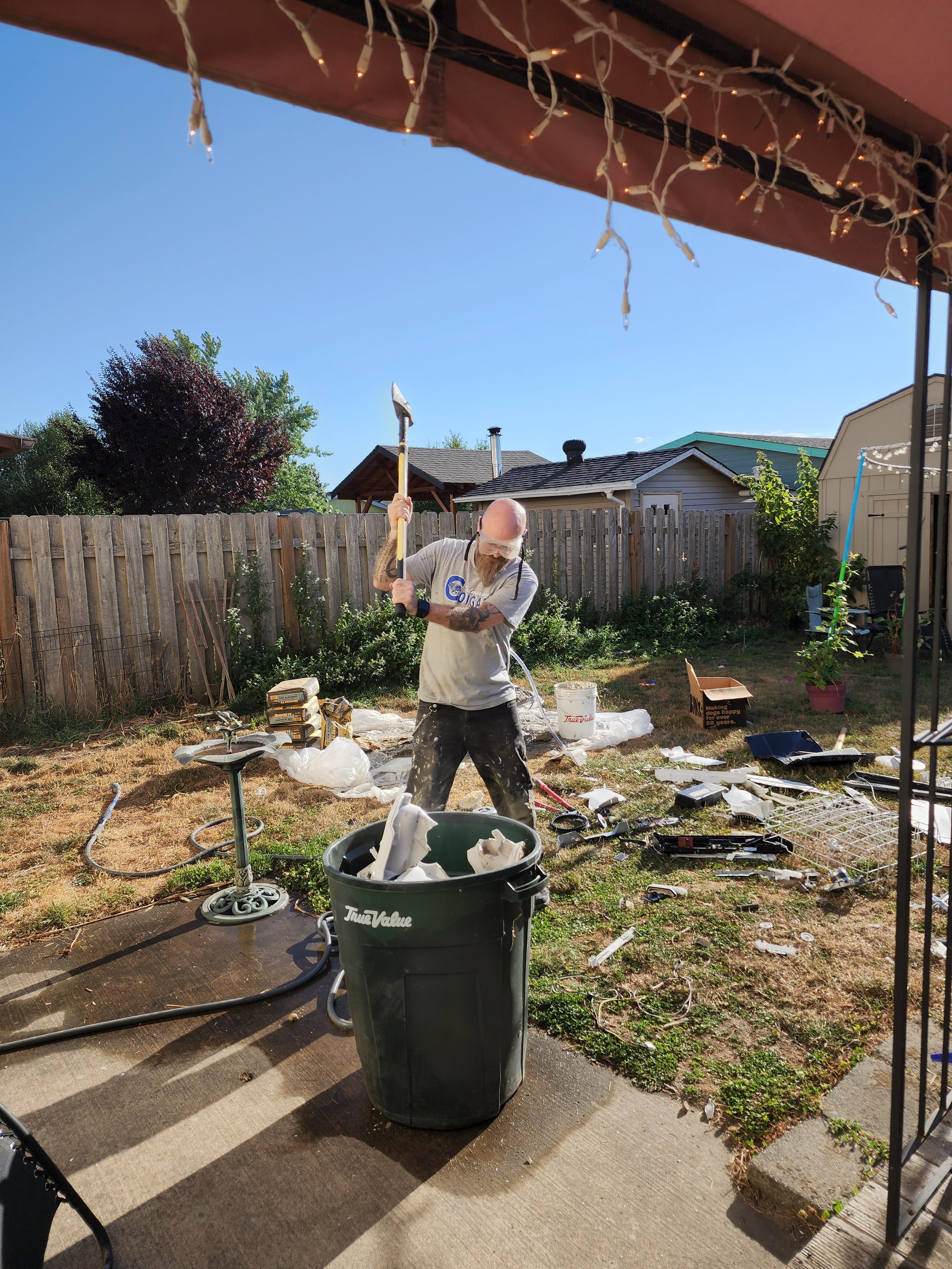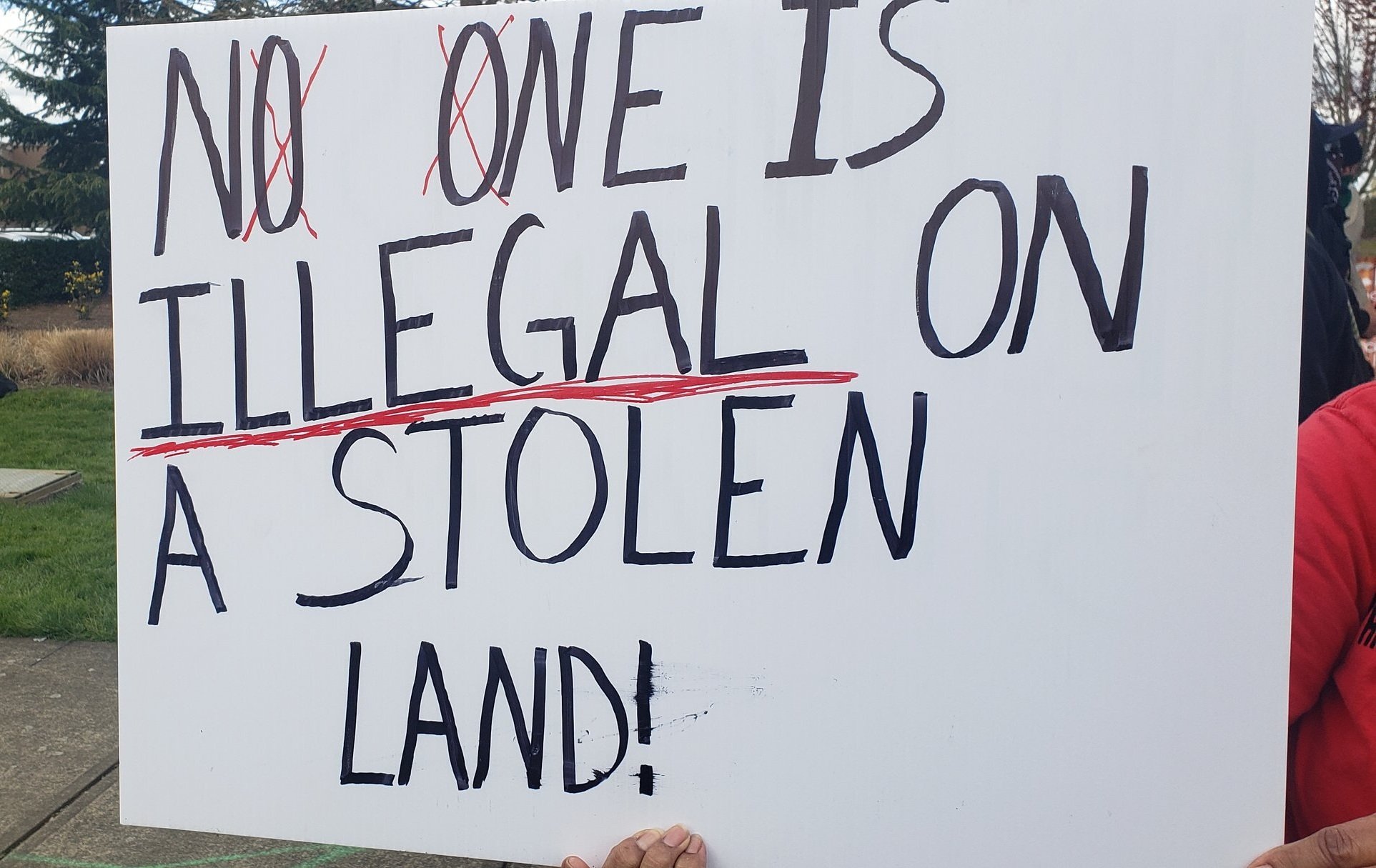Ben Gorman immersed in writing as teacher, author and publisher
/I made the paper! Here’s an article by David Hayes of the Itemizer Observer from November 1st, 2023, preserved in case it gets lost in their archives:
Ben Gorman immersed in writing as teacher, author and publisher
by David Hayes
November 1st, 2023
Ben Gorman, a creative writing teacher at Central High School, displays books printed by his company Not a Pipe Publishing Ink-Corporated, including his last novel “Don’t Read This Book,” and gives a sneak look at his latest novel, “You Were Warned."
Photo by David Hayes
Whenever Ben Gorman is at a public event, say Independence Days or Rose City Comic Con, inevitably someone will approach him and exclaim a non-sequitur that would leave onlookers not in on the reference scratching their head.
“Somebody will walk up and go, ‘The Magritte painting!’ and they’ll get the reference,” Gorman said, referring to Not a Pipe Publishing Ink-Corporated. “I’ll go, ‘I bet you were either a philosophy major or art history major.’ Almost without fail. Nice to have folks make that connection.”
The name of Gorman’s Independence-based publishing company refers to a work by French painter René Magritte, “this is not a pipe,” that represented a thing that is not a thing. An apt epithet, Gorman explained, for a company that features printed works that are all representation.
“It’s not the thing itself. It’s fiction representing our world in some way,” he said.
The first book Not a Pipe Publishing Ink-Corporated published in 2013 was one of Gorman’s works, figuring his tome would look more legitimate if it came from a local imprint, rather than going through the self-publishing route.
“I’d made so many mistakes in the publishing of this one book, I thought I can help a lot of other authors avoid those mistakes,” Gorman said.
Not a Pipe Publishing Ink-Corporated now has dozens of authors of both genre fiction and poetry, and Gorman’s latest novel has been added to the catalog -- “You Were Warned,” the sequel to his 2019 urban fantasy, “Don’t Read This Book.”
Now in his 19th year at Central High School, 23rd overall in education, Gorman teaches ninth grade English and creative writing for juniors and seniors. He couldn’t enjoy more being fully immersed in the writing industry and passing on his passion to the next generation.
“I get to teach creative writing, which is every writer’s dream. I get to talk about reading and writing all day,” Gorman said.
Tracing the evolution of the publishing industry, Gorman said there used to be very few big companies, and in order to break through, one had to pass through several levels of gate keeping. Gorman, in part, started Not a Pipe Publishing Ink-Corporated to circumvent the process, which was timed perfectly with a change in the industry.
“Technology changed, so you could now purchase a book and it could be printed after the fact. So you didn’t have to print a run of 10,000 books and keep these in the garage and hope for success,” Gorman said.
“It allowed for a company like ours to vet and decide who are these really talented authors whose books really deserved to be read then as people buy them they get printed,” he added.
The company has since grown significantly. Not a Pipe Publishing Ink-Corporated now features 43 titles in print and 80 authors under contract.
They started with genre fiction, especially by underrepresented authors, women, and people of color, which Gorman said has been important throughout.
Their biggest “get” came from participating in 2018’s Year of Publishing Women, which challenged publishers to commit to publishing only women for a year.
“That was huge for us, because it kind of put us on the map,” Gorman said. “We were one of two publishing companies in the world that participated. We took that challenge and made a big deal of it.
“Authors we signed that year have become our mainstays who keep coming back. That’s been really wonderful for the company, to be an outlet to help folks who otherwise get mistreated by this industry.”
They have published more authors from the Pacific Northwest than anywhere else, including Portland, Seattle and Grants Pass. But they’ve also accepted submissions from authors in England, Norway and Pakistan. Not a Pipe Publishing Ink-Corporated has an open submission period every August, when they receive hundreds of books that they winnow down to asking for full transcripts from about 10.
“But we can’t publish 10 a year. It’s a really tough challenge to do three or four in addition to sequels to previous authors,” Gorman explained. “It looks like next year we may publish eight or nine, which is a lot for us, but they’re so good really have a hard time turning these away.”
The small company consists of Gorman, co-owner and fiancé Chrystal Law, who also owns Bricks & Minifigs in Salem, who handles the marketing side. They have a team of freelance folks, editors who evaluate submissions. But the entire paid staff is just Gorman.
“We’re ready to grow. We need to grow. We need more people if we’re going to do more, otherwise we need to stay same size,” he said.
The irony to Gorman’s first novel is he most definitely wants you to read, “Don’t Read This Book.” He calls it the first in a trilogy with a “what if” premise.
“What if all the monsters in mythology actually existed in our world and got together once a year at a convention in Las Vegas to talk about how to keep themselves secret,” Gorman said. “Things go awry when one of them tricks the rest into abducting and forcing this human author to write a book that is so scary, it will kill anyone who reads it. The other monsters think this might be a great idea, not realizing if all the humans are killed, they lose their food supply.”
The sequel, “You Were Warned,” continues the saga of killer monsters.
“It’s a fun kind of adventure, with underneath, I hope, a much deeper book questioning our own mortality and how our identities play into our ability to acknowledge that we are human,” Gorman said. “And this one has baby werewolves. Who doesn’t like baby werewolves?”
He hosted a launch party for “You Were Warned” Oct. 28 at Rose City Book Club, along with fellow Not a Pipe Publishing Ink-Corporated author Kate Ristau promoting the third in her trilogy. Gorman said no local events promoting his book have been scheduled yet.
He added the U.S. culture has entered a time where books and authors are under attack and now is perfect to support those who deserve the public’s thanks.
“Kate Ristau has a wonderful afterword in her latest release thanking librarians. I just encourage everyone, please, support librarians. Support local bookstore owners. Support authors, support people fighting for books and freedom of books,” Gorman said. “There are a lot of forces out there that are trying to stifle what is getting into people’s hands.”












































